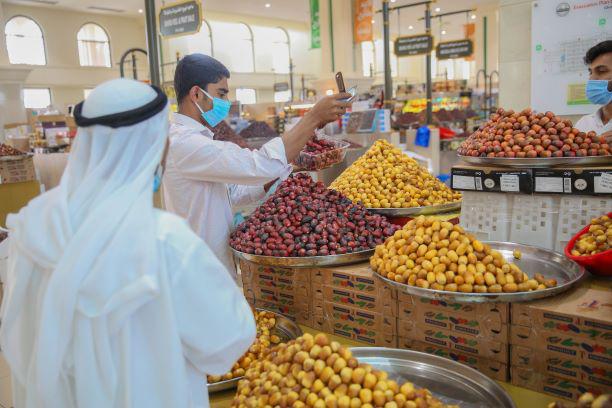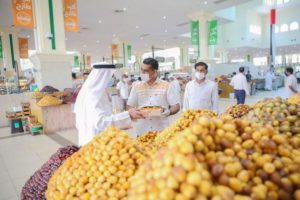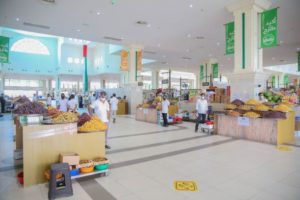Souq Al Jubail Kicks Start Annual Dates Festival

Souq Al Jubail has launched the activities of the sixth edition of the annual Dates Festival, which will continue for two months – until the beginning of next September. At Souq Al Jubail and For the first time at Al Hamriyah.
A wide variety of local and imported dates are available at the Festival. Souq Al Jubail organises this date festival every year to support local farmers, which is an integral part of the UAE heritage.
On the first day, the Festival witnessed a remarkable turnout of shoppers and visitors, who loves dates and enjoyed tasting and buying various types of local and imported dates, such as Al-Nighal, Al Khunaiziri, Al Ratana and Al Jabali among others in addition to some manufactured products from dates for preparing the most delicious Emirati, Gulf and Arab dishes and sweets.
Engineer Hamid Al Zarouni, Executive Director – Asset Management at Sharjah Asset Management Company – the investment arm of the Government of Sharjah, stressed that the festival still maintains its position as one of the most important events specialised in displaying and selling dates and their products in the country at competitive prices, noting that the event combines both sides commercial and heritage.
Al Zarouni highlighted the importance of the palm tree’s role in economic life as well as its products and presence on the Emirati table in many daily foods and social occasions.
He said: “This year’s Festival includes the participation of 10 kiosks in the Souq Al Jubail in Sharjah, and two kiosks in the Souq Al Jubail in Hamriyah, all of which display large quantities of the finest dates and their products. The festival will remain open during Souq Al Jubail working hours, taking into account the precautionary measures, and the maximum safety standards while displaying products to the public.
The palm is an important icon, especially in the historical heritage of the UAE. Successive generations have planted and taken care of it, and the wise leadership of the country has given it great importance, with the aim of promoting palm cultivation and enhancing its competitiveness, until it became an integral part of the tributaries of the national economy.



